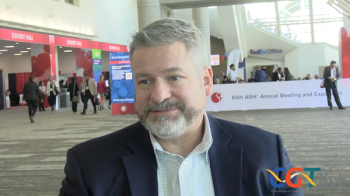
The chief medical officer of Orca Bio discussed some trends he was excited about at ASH’s 2023 conference.

The chief medical officer of Orca Bio discussed some trends he was excited about at ASH’s 2023 conference.
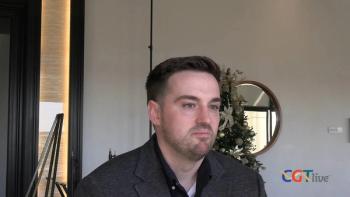
The chief hematology/oncology fellow at University of Chicago discussed new data from the ROCCA collaborative study presented at ASH 2023.
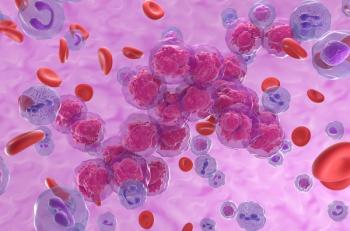
A pooled analysis of the ALLCAR19 and FELIX trials including patients with R/R B-ALL, B-CLL, and B-NHL were presented at ASH 2023.
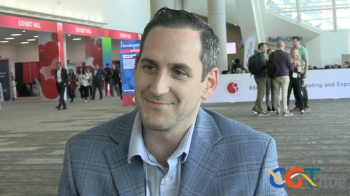
The hematologist and cell therapist from the University of Miami Sylvester Comprehensive Cancer Center spoke about long-term outcome data he presented at ASH’s 2023 conference.
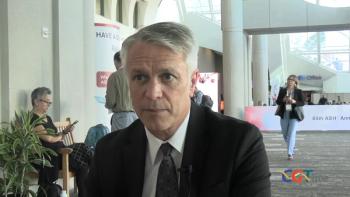
The professor of pediatric hematology/oncology at CS Mott Children’s Hospital discussed 3-year follow-up data from the HOPE B trial of the approved gene therapy, branded as Hemgenix.

BCMA-directed CAR T-cell therapy anitocabtagene autoleucel demonstrated a 76% complete remission rate and 89% negative minimal residual disease in patients with relapsed/refractory multiple myeloma.
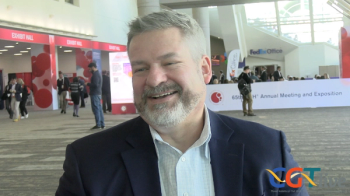
The chief medical officer of Orca Bio discussed data the company presented on its Orca-T and Orca-Q programs at ASH 2023.

The CSL Behring/uniQure gene therapy produced significant reductions in annualized bleeding rates and the number of total bleeds, with a consistent safety profile and no new adverse events.
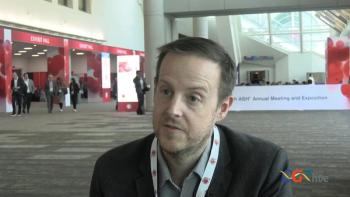
The associate professor at Peter MacCallum Cancer Centre discussed case study research from the center and possible contributions to the case.

No significant differences were observed between patients with and without HCBV in the reductions seen in ABR for all bleeds during the 7 to 36 months posttreatment timeframe.

Among patients with chronic lymphocytic leukemia and small lymphocytic lymphoma, the Bristol Myers Squibb CAR T cell product showed consistent efficacy in patients with a lack of success with BTK inhibitor and venetoclax treatment.
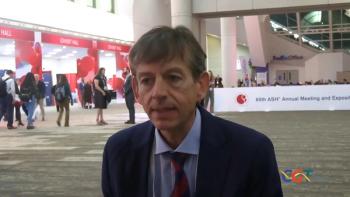
The professor of hematology at University of Lille and chair of LYSA shared updated data from the TRANSCEND-FL trial.
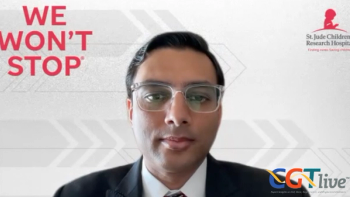
The bone marrow transplant physician at St. Jude Children’s Research Hospital also discussed the recent approval of exa-cel.
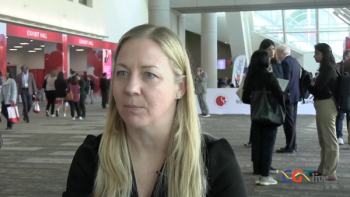
The medical Director and interim co-Chief Medical Officer at Seattle Children's Therapeutics discussed complete data from the PLAT-03 feasibility trial assessing SCRI-CAR19 and CD19t T-APCs in B-ALL.
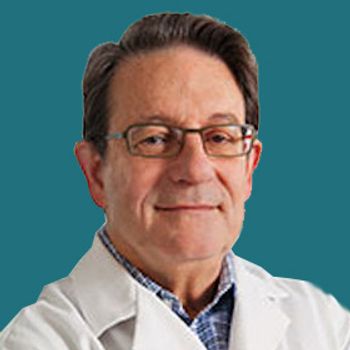
A CRISPR/Cas9-edited allogeneic stem cell transplantation effectively reduced hematopoietic toxicity associated with maintenance gemtuzumab ozogamicin for high-risk acute myeloid leukemia (AML).
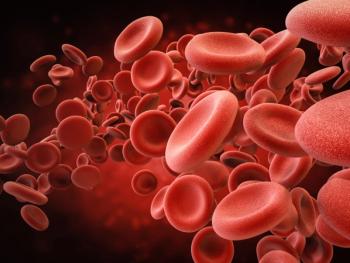
Data from 3 early phase clinical trials assessing BRL-101 in 10 patients were presented at the ASH 2023 meeting.
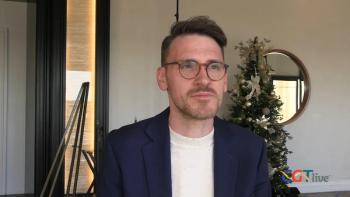
The postdoctoral researcher at Laboratory for Translational Cancer Immunology, Ludwig-Maximilians-Universität München, discussed an analysis of female and male patient outcomes after axi-cel therapy.

CD19-directed CAR-T-cell therapy resulted in sustained remission for over a year and no return of autoimmunity for patients with systemic lupus erythematosus, idiopathic inflammatory myositis, and systemic sclerosis.
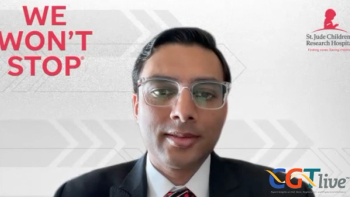
The bone marrow transplant physician at St. Jude Children’s Research Hospital discussed an analysis of the sickle cell disease gene therapy he’s presenting on at ASH’s 2023 meeting.
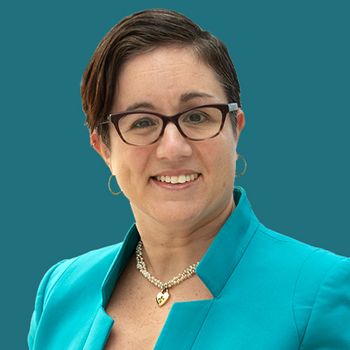
Long-term data on lovo-cel gene therapy for sickle cell disease (SCD) reveals sustained efficacy at 60 months.

Bluebird bio’s gene therapy, marketed as Zynteglo, showed successful rates of transfusion independence up to 9 years with a reasonable safety profile in data presented at ASH 2023.
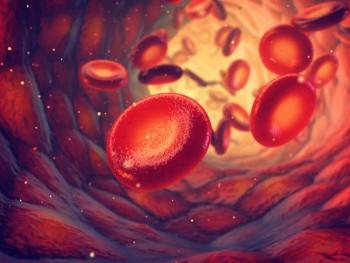
There were no treatment-related serious adverse events reported.
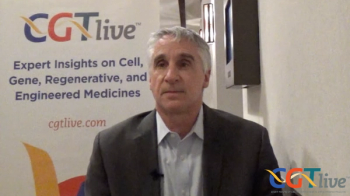
The director of cell therapy and transplant at Penn Medicine discussed the seminar he gave at the inaugural Cell Therapy for Autoimmune Disease Summit.

uniQure’s AAV9-vector therapy carrying 2 small interfering RNAs targeting GRIK2 was well-tolerated, with a hopeful risk-benefit ratio. A phase 1/2 is set to begin recruitment in late 2023.
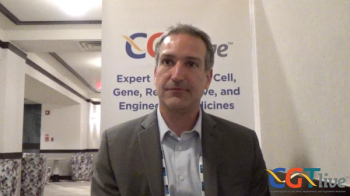
The senior vice president and head of research at Kyverna Therapeutics discussed the company’s investigational CAR-T therapies, KYV-101 and KYV-201.
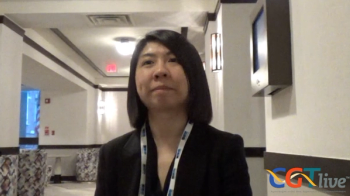
The vice president of discovery at GentiBio discussed the panel she participated in at the inaugural Cell Therapy for Autoimmune Disease Summit.
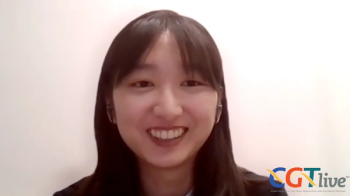
The life science research professional at Stanford University discussed preclinical research she presented at the American Heart Association’s Scientific Sessions 2023.
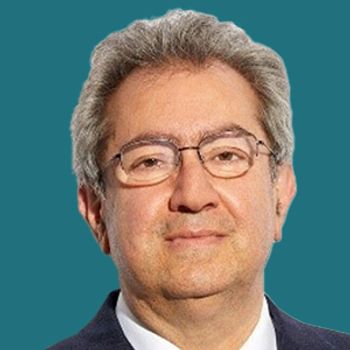
Roger Hajjar, MD, the director of the Mass General Brigham Gene and Cell Therapy Institute, spoke about his presentation on gene therapy for cardiologists at AHA’s 2023 Scientific Sessions.
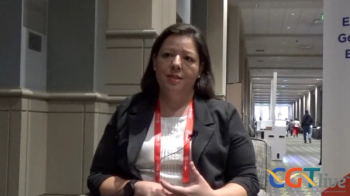
The research associate at the The Texas Heart Institute discussed preclinical research she presented at AHA’s 2023 Scientific Sessions on MSC-derived exosomes.
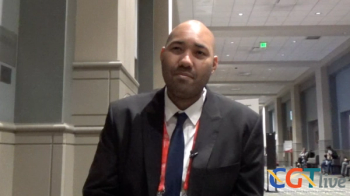
The postdoctoral research fellow at Cedars Sinai Medical Center discussed the future of RNA therapy in the context of research in systemic sclerosis he presented at AHA’s Scientific Sessions 2023.